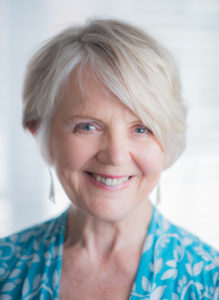Binge-writing: The role of narrative in my eating disorder recovery
Binge-writing: The role of narrative in my eating disorder recovery

‘Your life is your story. Make it amazing.’
by Ari Snaevarsson
Whenever I think of the tools that were instrumental to my recovery, a few always come to mind: accountability through a support system, exercise that emphasized strength and not punishment, and meditation. But there was one tool that consistently took my hand and walked me through recovery that I often forget.
I never had to force myself to adhere to a journaling habit. It came naturally, showing itself through various channels, whether those were written articles, messages to trusted friends, or actual journal submissions. Writing has always been a part of me, so a recovery that didn’t rely on writing as a meditative and contemplative outlet was never an option.
‘This isn’t how your story ends’
In the depths of my binge-eating, there were many occasions where things got so bad that none of my regular coping tools were going to cut it. And as I look back on this difficult time, it was always writing that came to the rescue, slamming open my dorm room door, watching 20-year-old me hold back tears while staring at my unwrapped binge foods, putting its hand on my shoulder, and whispering, “This isn’t how your story ends.”
I never stopped to think about why it was that writing was so often my go-to recovery tool, but as I reflect on it now, it’s quite clear.
In second grade, I wrote my first “book.” It was 30 pages and told the story of a boy who discovered an outlandish group of characters in a cave behind his backyard. From that point on-wards, writing was simply the natural answer to most of life’s worries. I wrote songs, movie scripts, and short stories throughout elementary school, and I went through countless journals up until high school.
Writing for survival
When I started competitively bodybuilding, the sport that would send me down a dark hole of body hatred and food fear, I took to the forums to record my journey, not just to track training progress but also my mental sanity. Looking back on those forum entries, it’s apparent that I needed this outlet. These thoughts would have otherwise consumed me entirely.
After my second show, when some of my most intense binge-eating behaviors surfaced, and the need for recovery made itself clear as day, a regular journaling habit was my saving grace. I distinctly recall my 3 a.m. trips to 7-Eleven, stocking up on as many binge foods as I could and praying nobody from campus was there to see me. And I recall the intense flood of emotions that would overwhelm me as I prepared my foods and mentally prepared for what was coming.
What I don’t recall is the binges themselves. It was as if the second I took my first bite, I blacked out and didn’t regain consciousness until the binge was over. And by that point, I was in such immense pain and agony, and so full of shame, that there was very little I was willing to do. All the regular advice for what to do after a binge – calling a friend, going for a walk, meditating even – was laughably out of the question by that point. My mind was confused, my stomach was screaming, and my soul was crying. I just needed something I could do to let these thoughts escape and find a comfortable home.
Letting thoughts flow onto the page
And so, I would grab my walnut brown journal, with its French binding and beige lined pages, and I would grab my pen, and I would let my thoughts flow. There’s something so inexplicably freeing about writing without stopping. I wouldn’t pause to edit my thought process or slow down and think of the proper next word. I would just voraciously scribble any and every thought in my head, before those thoughts could succeed at their job of convincing my neural connections that, yes, I am indeed a gluttonous pig with no future or purpose.
What’s most interesting about it all is that I never once looked back at what I wrote. That wasn’t the purpose, though at the time I might have believed otherwise. The purpose was less to record for later recollection and more to expel the thoughts and their underlying cognitive patterns. This prevented them from snowballing into more intrinsically credible beliefs, which in turn allowed me to make a full recovery.
Developing self-help skills through journaling
And so, with this natural proclivity for writing and this need for it throughout my recovery process, it was only natural that I would go on to write and publish a book on eating disorder recovery. This book, 100 Days of Food Freedom, is a look into the 100-day process that I believe can guide recovery and assist healing from eating disorder symptoms. And it was only natural that, out of the nine foundational habits assigned throughout the 100-day journey, the first is journaling.
 About Ari
About Ari
I work as a nutrition coach, helping those primarily with disordered eating behaviors move away from the diet trap and into an intuitive style of eating that emphasizes self-care and body respect. I also work as a diet tech and counselor at a residential eating disorder treatment center. My life now revolves entirely around helping others experience the same wonderful feeling of recovery I’ve felt, and central to this – time and time again – is some form of regular journaling habit. As I routinely tell my clients, albeit usually in a less literal sense: Your life is your story. Make it amazing.
Links:
- The 100 Days of Food Freedom site: www.100doff.com
- The 100 Days of Food Freedom book: https://read.amazon.com/kp/embed?asin=B07JD1PY9W&preview=newtab&linkCode=kpe&ref_=cm_sw_r_kb_dp_kJGlCb5K2FY45
- The 100 Days of Food Freedom IG: www.instagram.com/100daysoffoodfreedom
- The 100 Days of Food Freedom Facebook: www.facebook.com/100doff
 Mentoring – Writing Your Story
Mentoring – Writing Your Story
Would you like help in writing your story? As a writing mentor, I offer understanding and guidance in expressing what you want to say with the written word. The process of writing your story can be very therapeutic. To arrange mentoring assistance, write to me at june@junealexander.com.





